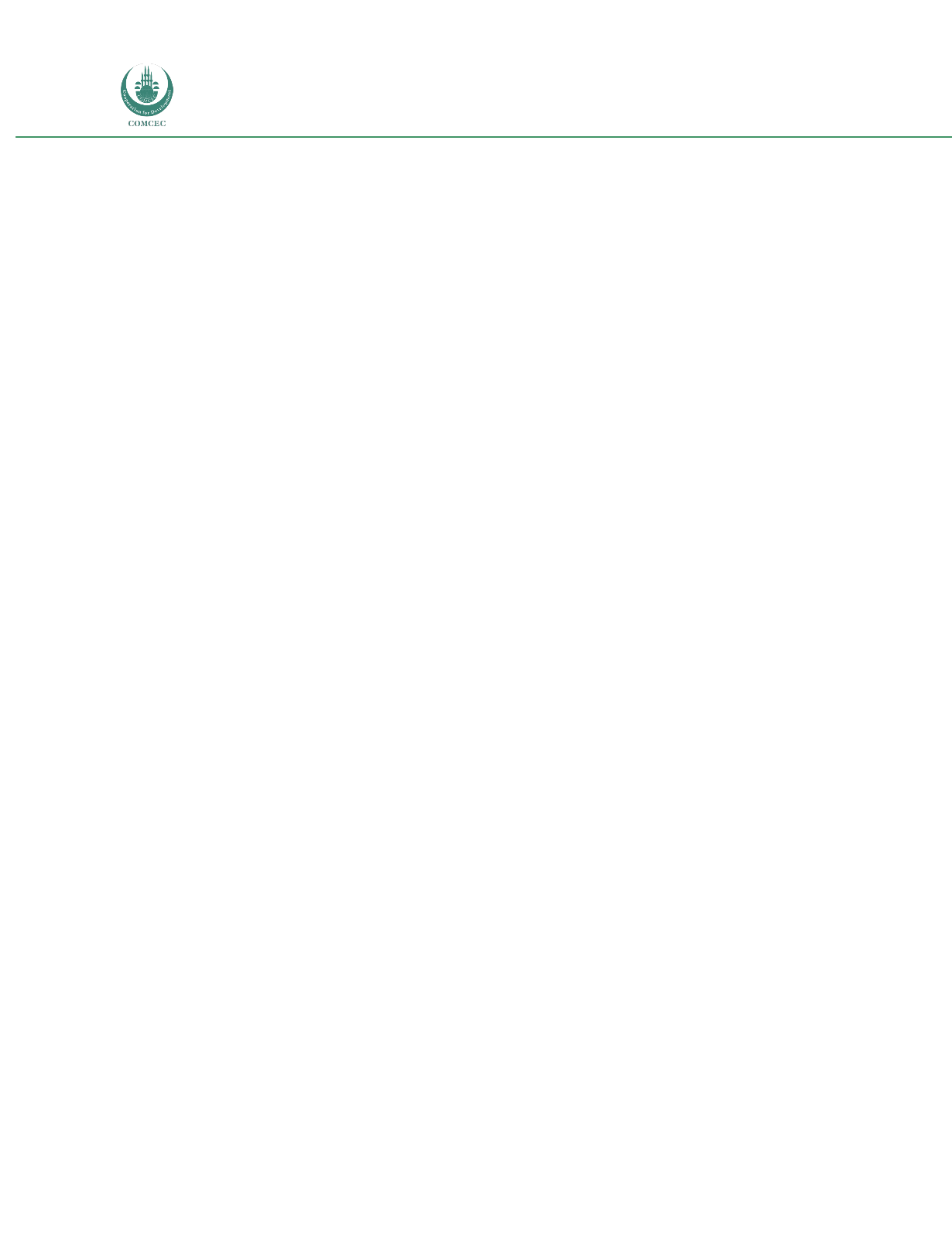

Strengthening the Compliance of the OIC Member States
to International Standards
106
prevailing standard in the exporting market. Senegal therefore makes extensive use of international and
foreign standards in its practice, in a way that should facilitate trade in line with WTO objectives.
Despite serious constraints of technical and financial capacity, ASN endeavors to take part in the work of
regional and international standards organizations. As a member, it participates in seven ISO technical
committees and all technical committees of the ECOWAS and ARSO regional organizations. It also takes
part in the work of the Standards and Metrology Institute for the Islamic Countries.
An important aspect of the international standards harmonization agenda in Senegal is the regional
dimension. UEMOA is developing a regional quality infrastructure, which encompasses the various
aspects discussed in this report. Progress is ongoing, but much remains to be done. Working regionally
is an attractive option for small, low income countries because it opens up the possibility of pooling
technical and financial resources in an optimal way. ARSO has also been active in harmonization at the
pan-African level, having issued over 700 standards. Its work was effectively suspended for a period, but
it appears that it is now gaining momentum again. Finally, ECOWAS has been engaged in harmonization
work since 2012.
Clearly, an important challenge for Senegal against the background of these various initiatives is to
maintain its commitment to international—as opposed to simply regional—harmonization. To the
extent that regional efforts can help crystallize international norms as regional practice, then the
participation of regional structure is obviously to be welcomed, and could be of significant assistance to
a country like Senegal. In any case, Senegal is fully involved in regional efforts, and sees the UEMOA
quality infrastructure initiative as key to development of the national standards landscape in the coming
years.
Concretely, UEMOA has adopted harmonization regulations covering various aspects of standardization
and quality infrastructure, focusing on pesticides (Regulation No. 04/2009/CM/UEMOA), plant and
animal health and food safety (Regulation No. 07/2007/CM/UEMOA), and plant seeds and seedlings
(Regulation No. 03/2009/CM/UEMOA). Typically, these initiatives privilege the use of international
standards on a regionally harmonized basis. This development is a positive one for Senegal, as it builds
on the country’s own record of using international standards whenever possible. UEMOA has also
developed rules for mutual recognition of conformity assessment and testing, but there is evidence that
foreign certificates are often not recognized as they should be at border crossings, which leads to costly
re-testing. The West African single market is far from complete in this regard: see Maur and Shepherd
(2015) for a detailed analysis of the case of food staples trade in the region.
















